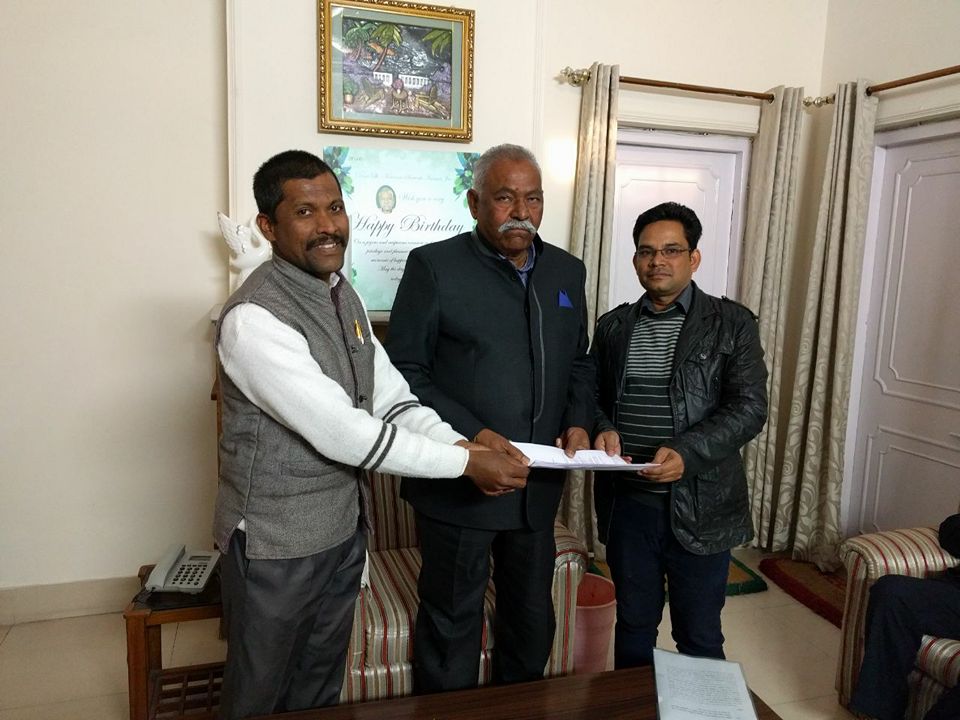How an Article in The Better India Launched a Movement for Environmental Education in India
It is more important than ever for the government to address issues concerning the education and employment opportunities available to those passionate about the environment in India. Kumar Deepak makes a strong case for the promotion of the subject at every level across the country.

It is more important than ever for the government to address issues concerning the education and employment opportunities available to those passionate about the environment in India. Kumar Deepak makes a strong case for the promotion of the subject at every level across the country.
In the wake of the Paris Climate Agreement all set to become legally binding between 2020 and 2030, we have witnessed our government’s firm commitment to wage war against climate change. In recent times, India has made great advances on the environmental protection front.
The government has been an integral partner in three major global plan objectives set to roll out over the next 15 years. First, India ratified the Paris Climate Agreement in October 2016, ensuring that the country is now legally bound to reduce carbon emissions by 30-35% of our 2005 Gross Domestic Productivity, in accordance with Nationally Determined Contributions (NDCs).
Secondly, India is committed to fulfilling the goals set by the UN Agenda on Sustainable Development. Sustainable Development Goals (SDGs) span 13 deals covering climate change, six deals concerning clean water and sanitation, 14 deals titled ‘Life below Water’, and seven concerning life on land.
Additionally, the Third Long Term Plan sets environmental protection as a significant objective for the next 15 years. India has also already signed the Sendai Framework for Disaster Risk Reduction 2015-2030, outlining the need for understanding disaster risk at local, regional, national and global levels.
It looks like a sound environmental policy shall occupy a core central position in the government’s agenda.

The major question that arises now is whether the current structure of environmental education in the country equips workers associated with the programmes to achieve the long term global objectives? Is existing environmental training upto the task, or do we risk collapse due to incumbent policymakers who lack the expertise and knowledge required to tackle such specific environmental issues?
It is a fact that there is a serious dearth of faculty trained in teaching environmental studies at the primary, middle and high-school levels. As a result, environmental education is doled out by any available staff member, the majority of whom hold no specific environmental degrees themselves.
In several states, pre-university courses entirely lack environmental science as a subject. Although several universities have introduced diverse environmental courses at the undergraduate and postgraduate levels (even offering degrees such as MPhils and PhDs), a large number of them lack the required expertise. Unfortunately, educational staff with backgrounds in botany, zoology, life sciences, geology, chemistry, physics, and geography now occupies prime faculty positions in university departments of environmental studies.
Those that do hold specialised degrees remain largely unemployed outside the sphere of education since available positions at government offices tend to be given to existing employees under a deputation model, despite the fact they have no specific knowledge about the environment.
Protests against dams, roads, rivers, and forests are a daily occurrence across the nation, but there has been no environmental activism demanding the establishment of a proper space and educational qualifications for environmental professionals. If the government offers special recognition to existing environmental experts, it would go a long way in mitigating disputes that arise between environmental activists and policymakers as well.
Journalism with an impact:

I recently wrote an article titled The Lack of Environmental Education in India and Why It Is a Must-Teach Subject, which was published in The Better India on October 21, 2016. It brought to light the work of a young research scholar, Moharana Choudhury who stood against discriminatory government policies with regards to environmental education and employment of professionals.
Since then, the article has provided a common platform for scattered voices, discussing the issue to combine their grievances and formulate a legitimate, valid demand advocating the appointment of professionals holding environmental studies degrees to faculty positions in schools, colleges and universities. There is conversation about appointments in specific environmental areas within the government, including official departments, industries, boards, committees, tribunals, and offices too.
Moharana Choudhury and his organisation Voice of Environment shared the article on WhatsApp and Facebook. Within a month, thousands of environmental degree holders congregated to raise a common plea. They have started meeting with their respective local leaders and are now submitting a written letter emphasising the priority and need for proper environmental education and the employment of qualified degree holders.
This further led to the formation of a National Core Team, which has issued a National Call for Environment to be held on February 22, 2017, at Jantar Mantar, New Delhi. The National Core Team comprises environmental leaders, scholars, and academicians across India who share a common passion for the environment and have devoted themselves to revamping environment educational in the country. Moharana Choudhury (Assam), Dr. Sanjay Marale (Maharashtra), Dr. Rouf Ur Rafiq (Jammu and Kashmir), Dr. Prakash Kariyajjanavar (Karnataka), Rema Thankappan (Tamil Nadu), and Dr. Yaspal Singh Narwaria (Madhya Pradesh) are some eminent members of the current team. They have been meeting with university departments and schools of environmental studies, students at college and school-levels, parents and research scholars, to convey why it is imperative to enhance green literacy in India.
Among the demands put forth by the group is a request for the termination of the encroachment of positions that should be filled by environmental experts and for the establishment of a mechanism to assure that academic and non-academic environmental cells employ qualified degree holders only. Furthermore, it highlights the need for better lab equipment and improved syllabi in accordance with national and United Nations environment policies as well as modern research and development in dealing with diverse ecological issues.
(Written by Kumar Deepak)
You can contact Deepak for more information on environmental education by writing to him at [email protected].
Like this story? Or have something to share? Write to us: [email protected], or connect with us on Facebook and Twitter.
NEW: Click here to get positive news on WhatsApp!
This story made me
- 97
- 121
- 89
- 167
Tell Us More
We bring stories straight from the heart of India, to inspire millions and create a wave of impact. Our positive movement is growing bigger everyday, and we would love for you to join it.
Please contribute whatever you can, every little penny helps our team in bringing you more stories that support dreams and spread hope.



















